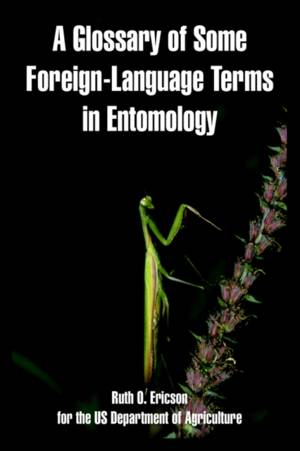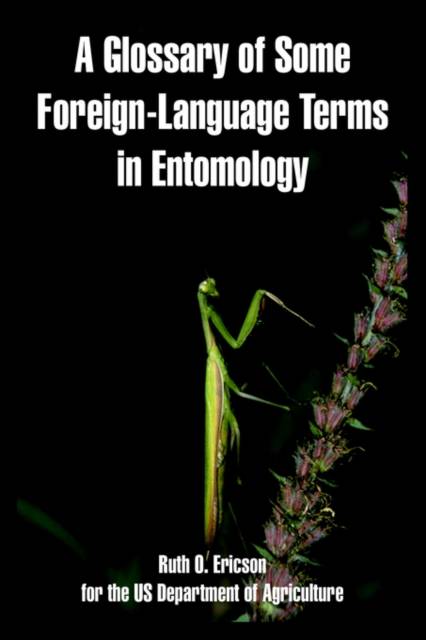
Bedankt voor het vertrouwen het afgelopen jaar! Om jou te bedanken bieden we GRATIS verzending (in België) aan op alles gedurende de hele maand januari.
- Afhalen na 1 uur in een winkel met voorraad
- Gratis thuislevering in België vanaf € 30
- Ruim aanbod met 7 miljoen producten
Bedankt voor het vertrouwen het afgelopen jaar! Om jou te bedanken bieden we GRATIS verzending (in België) aan op alles gedurende de hele maand januari.
- Afhalen na 1 uur in een winkel met voorraad
- Gratis thuislevering in België vanaf € 30
- Ruim aanbod met 7 miljoen producten
Zoeken
A Glossary of Some Foreign-Language Terms in Entomology
Ruth O Ericson, Us Department of Agriculture
Paperback | Engels
€ 30,95
+ 61 punten
Omschrijving
Translating scientific papers from foreign languages into English requires more than finding English equivalents in a dictionary. Sometimes the foreign words do not appear in the foreign-language dictionary or the equivalents cited for them are unsuitable. At other times the choice of equivalents is so wide that proper selection of the preferred English term is difficult. Dictionaries seldom make shades of meaning clear; they can usually be gleaned only from the context of the paper itself, from illustrations accompanying it, from a knowledge of the insect concerned, or by consulting European entomologists familiar with the common words in technical use. In older papers on entomology European writers used Latin technical terms in describing the parts of an insect's body, as American entomologists still do. But in the 1930's many European writers began to replace such technical terms by words from the common speech. Instead of the Latin, and hence universal, "abdomen," some German writers first adopted "Bauch" for the third section of an insect body. Since this word means abdomen or venter in man, it was not precise enough to designate the abdomen in insects. Therefore "Hinterleib" [= hinder part of the body] is now more generally used for abdomen; whereas "Bauch" is employed to mean the venter or sternum of the abdomen in insects, in more recent literature. These common words tend to be used loosely and inconsistently. Of two Russian collaborators in papers on grasshoppers, for instance, one uses a different Russian word for the sternum and the thorax, but the other uses the same Russian word for both. Many of these terms are not the ones preferred by European specialists in entomology. Many were incorrectly used by amateurs, or by entomologists writing in a language other than their own. Hence the terms appearing in this Glossary are not necessarily the ones used by the best writers, but the equivalents given for them were found to be those best suited for the purpose of a given translation. Miss Ericson had completed the manuscript for this glossary, but had no opportunity to review the proofs, at the time of her death on October 9, 1961.
Specificaties
Betrokkenen
- Auteur(s):
- Uitgeverij:
Inhoud
- Aantal bladzijden:
- 68
- Taal:
- Engels
Eigenschappen
- Productcode (EAN):
- 9781410216892
- Verschijningsdatum:
- 8/10/2004
- Uitvoering:
- Paperback
- Formaat:
- Trade paperback (VS)
- Afmetingen:
- 152 mm x 229 mm
- Gewicht:
- 113 g

Alleen bij Standaard Boekhandel
+ 61 punten op je klantenkaart van Standaard Boekhandel
Beoordelingen
We publiceren alleen reviews die voldoen aan de voorwaarden voor reviews. Bekijk onze voorwaarden voor reviews.









